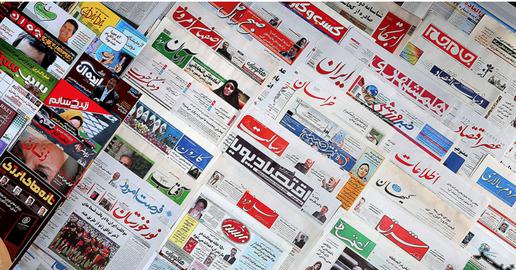Journalists in Iran who question the accuracy of official statistics on coronavirus have faced intimidation and been threatened with legal action, IranWire has learned.
One journalist received a threatening call from FATA, Iran’s cyber police, following a report he posted on Telegram. He was told he was only allowed to quote official statistics provided by the Ministry of Health, Treatment, and Medical Education or statements from the National Headquarters for Combating Coronavirus. The Supreme National Security Council regards information provided by these institutions as decrees and they are legally binding, the journalist was told.
The journalist IranWire spoke with said the Ministry of Health was not only filing complaints against reporters, but it was also directly imposing restrictions on them, "A colleague who reported on coronavirus statistics on a social network later had to make some of his writings inaccessible, and was the target of a complaint from the Ministry of Health, which accused him of disturbing public opinion,” the journalist said.
According to him, the pressure on journalists began in mid-February 2020, as reports on and speculation about coronavirus cases in the country began to emerge. "In some cases, the journalists were forced to deny the news,” the journalist told IranWire. “Newspapers that published the news — for example in Qom and Gilan provinces — were also banned from distributing in newspaper kiosks. The distributed copies were also collected from kiosks."
These pressures have intensified since late March. Local newspapers reporting on provinces were informed that news about coronavirus must be approved by and in accordance with the Provincial Security Council and in line with research released by medical science universities in provincial capitals. "In the days leading up to Norooz [the Iranian new year, which fell on March 20 this year], the provinces’ coronavirus headquarters officially wrote to media outlets telling them that the information about the spread of the disease and statistics should be published only after consulting them."
The journalist said that medical universities in the provinces had taken measures to control news output on the virus, including setting up dedicated Telegram news channels for the province. Only news generated by these Telegram channels, the official website for the University of Medical Sciences and the daily statistics provided by the Ministry of Health — announced at 2pm by the ministry’s public relations manager, Kianoush Jahanpour — would be allowed to be published and cited in the media.
He also said that despite the threats, “unauthorized” news about the pandemic continued to be leaked and published on social media and by Persian-language media outside Iran, causing Iran’s security agencies to take further action. In addition to threats from FATA police, in some cases, journalists were directly threatened or summoned by the Revolutionary Guards.
Currently it is a crime to report any statistics not endorsed or provided by the medical universities, the National Headquarters for Combating Coronavirus, or its provincial counterparts. The prosecutor's office has stated that the media and journalists who violate this procedure will be prosecuted on charges of "disturbing public opinion.”
But the journalist IranWire spoke with says it’s not a simple case of pressure mounting when media guidelines have not been followed. He says journalists have been pressured to disclose their sources, and warned to keep silent about coronavirus altogether. "A colleague in Tehran who had a complaint filed against him by the Ministry of Health on charges of disturbing public opinion was told by security forces that if he wants his file not to be sent to court he must stop writing about coronavirus on social media,” he said.
visit the accountability section
In this section of Iran Wire, you can contact the officials and launch your campaign for various problems

























comments